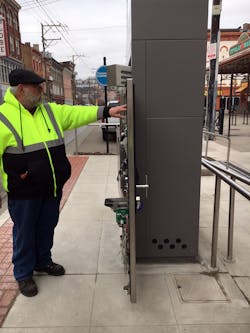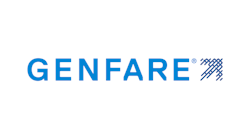The historic series of hurricanes that affected so much of the United States and the Caribbean in 2017 could have dealt multiple crippling blows to the transit systems in their paths. While services were certainly affected (rightly so for safety reasons), the agencies that were the most prepared had the least clean-up and repair to do when the wind, rain and storm surge had cleared. This especially held true for transit fare payment systems, including all of the electronic components required for today’s vending and fare collection equipment.
“Most natural disasters come with little or no warning, so protecting your agency’s fare payment systems actually begins when there are no known threats,” said Genfare Field Service Representative Bruce Zediker. “As part of our ongoing service to our customers, when contacted we share our Natural Disaster Preparedness Plan with them so getting their systems ready for a coming storm can be as swift and trouble-free as possible.”
Making Disaster Prep Easy So You Can Focus on Safety of People, Facilities, and Equipment
Genfare’s goal is to make it as easy as possible to guard the fare payment systems against damage from water and wind. The Preparedness Plan includes clearly defined steps to take, including timely removal of all components that can be taken out and stored safely, such as any cash and ticket modules. Once all removable components have been taken out, Genfare suggests using plastic shipping wrap to protect the entire ticket vending machine, from top to bottom, to cover all openings in order to keep water from being blown into the machine.
“It may sound a lot like common sense, but there are actually some very specific instructions we suggest to maximize protection of the equipment, and our Plan details all of that,” said Zediker.
Return to Service: “No Pressure”
Bringing fare payment systems back online is just as important as preparing them for the disaster, and it requires certain steps that must be followed, including a warning not to use pressured water to clean up the equipment.
“I like to remind our customers that they are vending machines, not submarines,” said Zediker. “You have to understand that they are susceptible to even more problems if you use strong water pressure or fail to understand the damage that brackish salt water can do the electrical systems.”
Following Hurricanes Harvey and Irma, Genfare’s customers in Houston and Jacksonville, for example, successfully followed the suggested plans and minimized the amount of time to bring all systems back up for revenue service. They used fresh clean water and mild general purpose detergent where needed to clean out the systems, air cans to dry the components, and WD40 spray on all connectors to displace any remaining water and protect the systems for future use.
Genfare has also worked to make the re-installation and reconnection of the components as simple as possible. All jacks and connectors are uniquely numbered so they will match each other, easily facilitating the correct connections. There are status indicator lights on all electronic components, so the team reconnecting them to the base machine will receive alerts indicating any potential issues as they occur.
The Human Touch
Genfare is obviously all about fare collection solutions, but the company’s true value proposition lies with its people. As Zediker puts it, “We’re here to support our customers however we can, and in the event of natural disasters, we prioritize our customers who are being affected because we know how important it is to help them prepare, stay safe, and come back online as quickly as possible.”



